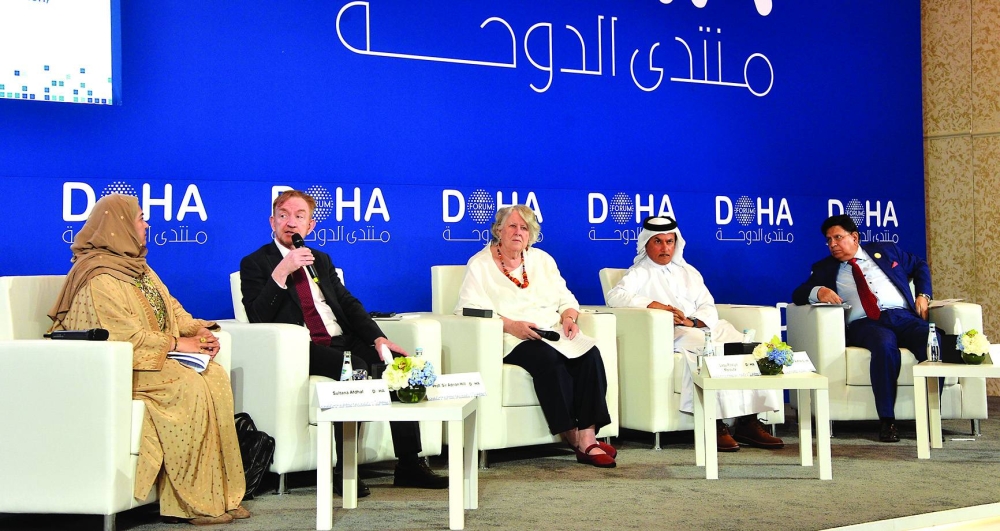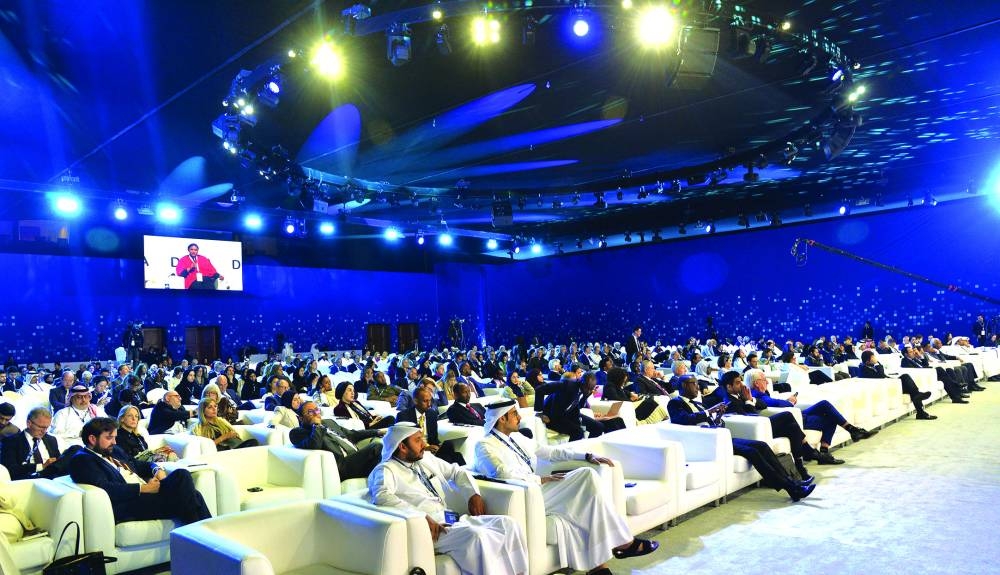Experts addressed the challenges in developing vaccines and making them available at a global level during a panel discussion at Doha Forum 2023 Monday.
The session on 'Vaccine Innovation and Global Health Resilience: Lessons from Covid-19 and Beyond' highlighted two major challenges in vaccine development and implementation.
“They are vaccine hesitation and global supply of vaccine,” said Prof Adrian Hill, director of Oxford University’s Jenner Institute. “There should be ways to address these challenges for effective implementation of vaccines all across the world.”
“Billions of doses of vaccines were developed, but there was no equality in the supply and distribution of it globally,” he said. “Africa suffered very badly. When 75% of Americans were vaccinated, only 4% of Africans were vaccinated.”
“We can’t allow that to happen again,” Prof Hill added. “Co-ordinated efforts are needed to prevent this happening again in case of another major breakout of any disease."
Another issue, he said, is vaccine hesitation.
“There is a lack of understanding of what vaccines offer, and this should be done away in the future,” Prof Hill said. “And in the education process, *there is the lack of an) understanding of risk. Vaccines are in the least category of risks.”
He noted that coronavirus (Covid-19) vaccines were developed at a faster rate as there was great support, funding and global understanding of the need for vaccine.
“It was also a great learning experience. We can develop vaccines much faster, and we did it,” Prof Hill said.
“Developing the malaria vaccine took more than 17 years. We are in a position to develop vaccine at a faster rate now,” he continued. “We have technologies and several types of vaccines.”
“Earlier, nobody had the right financing, support and the regulatory activities responses that we had during the Covid-19 pandemic,” Prof Hill said. “Under a year, we could develop three different vaccines.”
Dr Abdullatif al-Khal, head of Infectious Diseases and senior consultant at the Hamad Medical Corporation, noted that building resilience at the national level as well as healthcare levels are needed to meet any emergency scenario.
“Health systems may have to deal with pandemics in future,” he noted. “Building resilience for future causes can be money-saving, as we invest in health infrastructure and preventive programmes. This enhances the resilience of the country automatically.”
Global Fund to Fight AIDS, Tuberculosis and Malaria board chair Roslyn Morauta said that there was great unity among agencies to work on Covid-19 vaccines.
“All the agencies worked together, (more) than ever before,” she said. “We have to get a mechanism that vaccines are made available to low- and middle- income countries at the earliest.”
“Our organisation spends one-third of our money – about $1.5bn – every year on programmes for strengthening healthcare,” Morauta highlighted.
Bangladesh Minister of Foreign Affairs Dr AK Abdul Momen gave a detailed account of his country’s efforts and success in fighting Covid-19.
The session was moderated by World Innovation Summit for Health chief executive Sultana Afdhal.

Panelists at the session Monday. PICTURE: Shaji Kayamkulam

A section of the audience at a session of the Doha Forum. PICTURE: Shaji Kayamkulam

